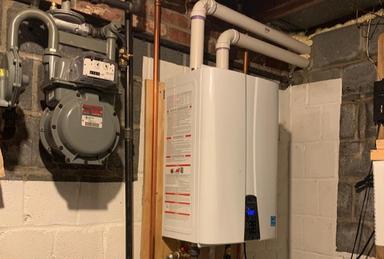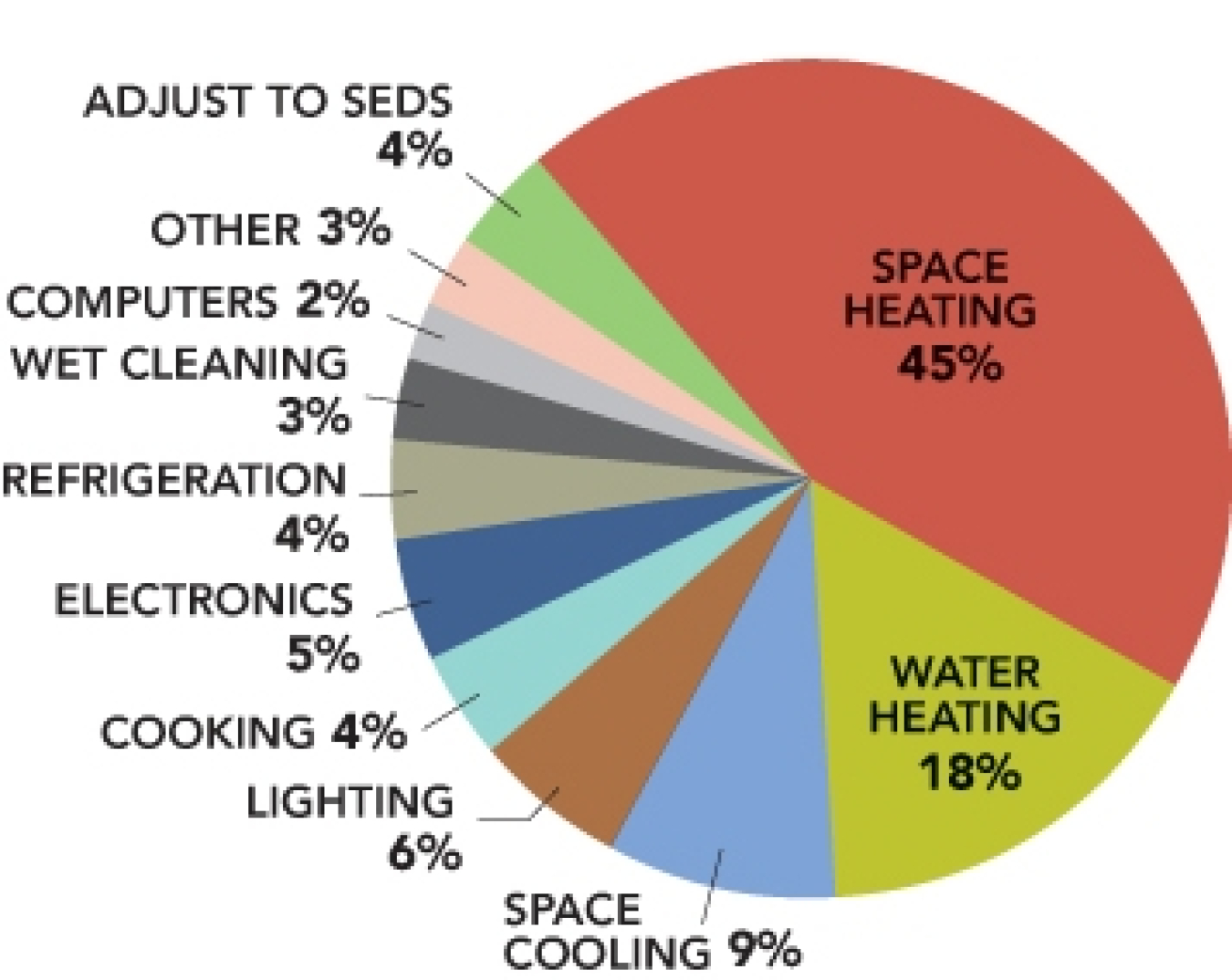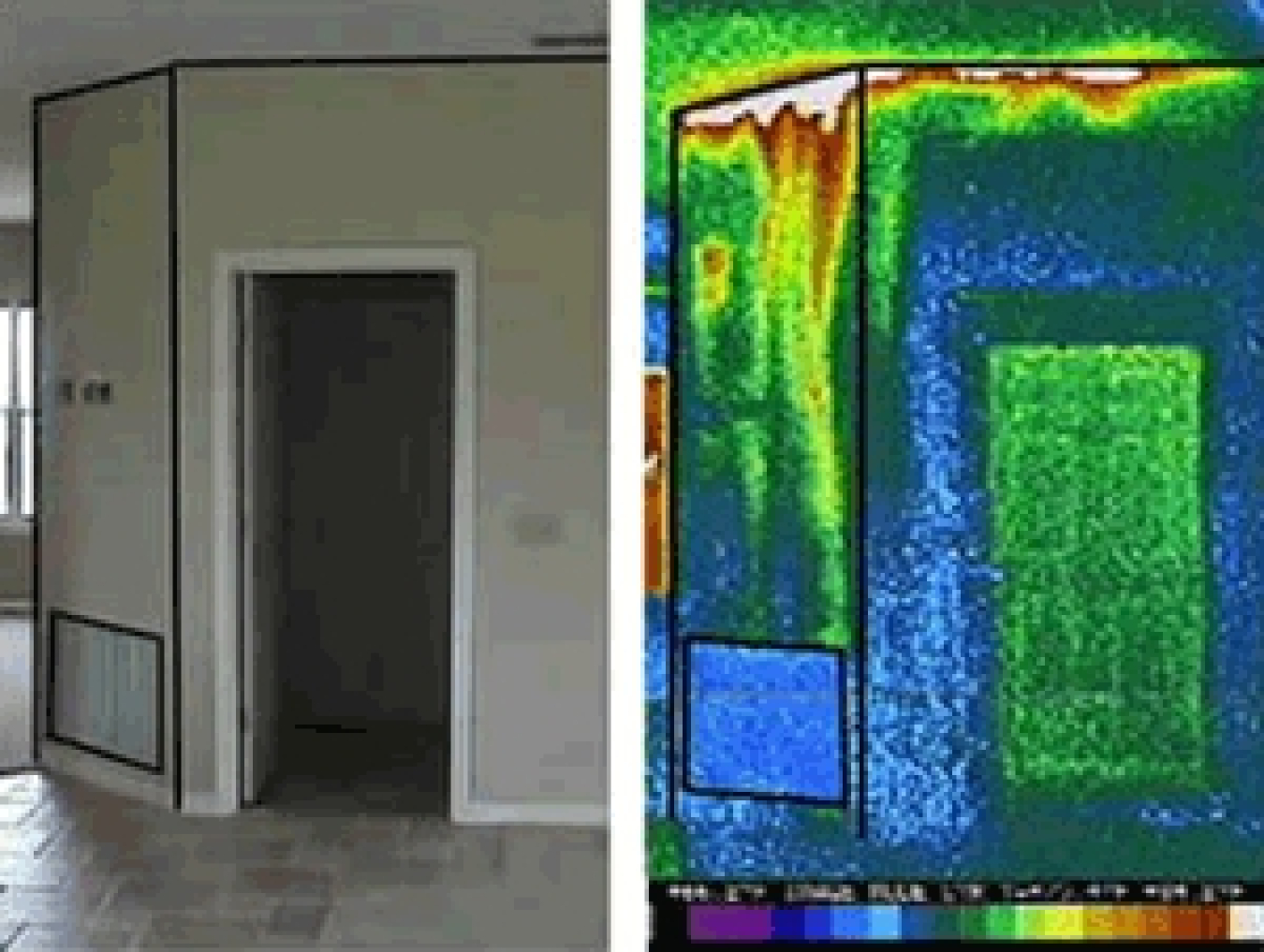
In the ever-evolving world of energy efficiency, homeowners are increasingly seeking ways to reduce their environmental footprint and cut down on utility bills. One of the most effective ways to achieve both goals is by making energy-efficient upgrades to your home. In this blog post, we’ll explore nine practical and impactful improvements that can enhance the efficiency of your living space. Whether you’re a seasoned eco-conscious homeowner or just starting to dip your toes into the world of energy efficiency, these upgrades can make a significant difference in both your comfort and your energy bills. According to U.S. Department of Energy Top Clean Energy Accomplishments in 2023
Understand How Typical Home Energy Improvements Can Result in a Better Building
Below are the most commonly recommended measures from a home energy evaluation that can help you save energy and save money—resulting in a better, more efficient, and more comfortable building. Your local Better Buildings Neighborhood Program partner can help you identify the specific improvements that make sense for your home or business.
HOW WE USE ENERGY IN OUR HOMES

TECHNOLOGY TACKLES ENERGY WASTE

An energy professional can use an infrared camera to pinpoint where air leaks and drafts are occurring in your home or building. These infrared photos clearly show in color where energy losses are occurring.
Typical home energy improvements
A. Seal air leaks around floors, walls, ceilings, windows, doors, and fireplaces with caulk, spray foam, and weather stripping. Warm air leaking into your home during the summer and out of your home during the winter can waste a lot of your energy dollars. The potential energy savings from reducing drafts in a home may range from 5% to 30% per year, and the home is generally much more comfortable afterward.
B. Add insulation to the attic, crawl space or basement, and exterior walls in conjunction with air sealing to help keep your house cool in the summer and warm in the winter. Increasing your home’s insulation is one of the fastest and most cost-effective ways to reduce energy waste.
C. Install more energy efficient windows, doors, and skylights by looking for ENERGY STAR products and install storm windows and doors to save energy and improve the comfort of your home or building. Air infiltrates into and out of your home through every hole and crack. About 20% of this air infiltrates through openings in your windows, doors, and skylights. Storm windows alone can reduce heat loss through windows by 25% to 50%.
D. Install and set programmable thermostats that save energy by automatically regulating your home or building’s temperature when you are home, asleep, or away. You can save as much as 10% a year on your heating and cooling bills by simply turning your thermostat back 10% to 15% for 8 hours.
E. Seal ducts and make sure they are straight and properly connected. Many duct systems are not insulated properly or have gaps or holes where air can leak out. You can lose up to 60% of your heated air before it reaches the register if your ducts are not insulated and they travel through unheated spaces such as an attic or crawlspace.
F. Tune-up or upgrade heating and cooling systems. Heating and cooling your home uses more energy than any other system in your home. Typically, 43% of a home utility bill goes to heating and cooling. By combining proper equipment maintenance and upgrades with appropriate insulation, air sealing, and thermostat settings, you can cut your energy use for heating and cooling from 20% to 50%.
G. Install an energy-efficient hot water heater, such as an energy-efficient tank water heater or an on-demand tankless water heater. Water heating is the third largest energy expense in your home, typically accounting for about 12% of your utility bill. Also consider using less hot water, turning down the thermostat on your water heater, and insulating your water heater.
H. Install thermostatic control valves in your shower, which shut off the shower once the water turns warm, saving hot water and energy until you are ready to enter the shower.
I. Upgrade household appliances and electronics to ENERGY STAR or ENERGY STAR Most Efficient qualified products. Appliances account for about 15% of your household’s energy consumption, with refrigerators, clothes washers, and clothes dryers at the top of the consumption list.
J. Install energy efficient lighting by choosing ENERGY STAR qualified light bulbs and lighting fixtures for the most used fixtures or light bulbs in your home or building. An average household dedicates 11% of its energy budget to lighting. Using new lighting technologies can reduce lighting energy use in your home by 50% to 75%.
To learn more and find out how to perform some of these improvements yourself, visit DOE’s Energy Saver website.
Insulation Overhaul
To create a truly energy-efficient home, start from the ground up with a comprehensive insulation upgrade. Proper insulation not only helps maintain a comfortable indoor temperature but also ensures that your heating and cooling systems operate efficiently. Check your walls, attic, and floors to identify areas where insulation may be lacking or deteriorating. By investing in high-quality insulation materials, you’ll not only keep your home cozy but also witness a substantial reduction in your heating and cooling costs.
Energy-Efficient Windows and Doors
Windows and doors are often overlooked when it comes to energy efficiency. Upgrading to energy-efficient windows and doors can prevent drafts, reduce heat transfer, and minimize the need for constant adjustments to your thermostat. Opt for double-pane windows with low-emissivity (Low-E) coatings, as they effectively control the amount of heat entering or leaving your home. Combine this with weatherstripping for doors, and you’ll create a more airtight seal, contributing to a significant reduction in your energy bills.
Smart Thermostats for Precise Temperature Control
Installing a smart thermostat is a game-changer for homeowners aiming to optimize their heating and cooling systems. These devices allow you to program temperature settings based on your daily routine, ensuring that your HVAC system operates only when needed. Additionally, many smart thermostats can be controlled remotely via smartphone apps, giving you the ability to adjust your home’s temperature from anywhere. This level of control not only enhances comfort but also promotes energy efficiency by preventing unnecessary heating or cooling.
Solar Panels for Sustainable Energy
Harnessing the power of the sun through solar panels is an excellent way to make your home more energy-efficient and environmentally friendly. Solar panels convert sunlight into electricity, providing a clean and sustainable energy source for your home. While the initial investment may seem significant, many homeowners find that the long-term savings on energy bills and potential tax incentives make solar panels a financially savvy choice. Consider contacting a local expert such as AVS Heating and Air Conditioning at (703) 457-9028 for advice on integrating solar panels into your home.
Energy-Efficient Lighting Solutions
Swap out your traditional incandescent bulbs for energy-efficient alternatives like LED or CFL bulbs. These options consume significantly less energy, last longer, and emit less heat, contributing to a cooler indoor environment. Beyond individual bulbs, consider installing smart lighting systems that allow you to control and schedule your lighting usage. This not only saves energy but also adds a layer of convenience to your daily life.
High-Efficiency HVAC Systems
Heating, ventilation, and air conditioning (HVAC) systems are major contributors to energy consumption in homes. Upgrading to a high-efficiency HVAC system can lead to substantial energy savings. Newer models are designed to operate more efficiently, providing better temperature control while using less energy. Regular maintenance and prompt repairs, handled by a professional service like AVS Heating and Air Conditioning at (703) 457-9028, ensure that your HVAC system runs smoothly and continues to operate at peak efficiency.
Energy-Efficient Appliances
Outdated appliances can be energy hogs, consuming more power than necessary. Consider upgrading to Energy Star certified appliances that meet strict energy efficiency guidelines. From refrigerators to washing machines, these appliances are designed to reduce energy consumption without compromising performance. Not only will this save you money on your utility bills, but it also contributes to a more sustainable lifestyle.
Water-Efficient Fixtures and Appliances
Reducing water consumption is another aspect of creating an energy-efficient home. Install water-efficient faucets, showerheads, and toilets to minimize water wastage. Additionally, consider upgrading to energy-efficient water heaters that heat water more efficiently, reducing both energy and water consumption. By addressing water usage, you’re not only conserving resources but also indirectly impacting the energy required to heat and distribute water throughout your home.
Sealing Air Leaks
Identifying and sealing air leaks in your home is a low-cost but highly effective energy-efficient upgrade. Leaks around windows, doors, and other openings can contribute to energy loss, making your heating and cooling systems work harder than necessary. Use weatherstripping, caulk, or spray foam to seal these gaps and create a more airtight environment. This simple yet impactful step can result in noticeable energy savings and improved comfort.
Conclusion
Transforming your home into an energy-efficient haven is a journey that involves thoughtful upgrades and a commitment to sustainable living. From comprehensive insulation overhauls to the installation of solar panels, each improvement contributes to a more efficient and eco-friendly home. By incorporating these nine energy-efficient upgrades, you not only reduce your environmental impact but also enjoy long-term savings on your utility bills. For professional assistance with heating and air conditioning needs, consider reaching out to AVS Heating and Air Conditioning at (703) 457-9028. Make these upgrades today to create a more comfortable, cost-effective, and environmentally conscious living space for you and your family.


